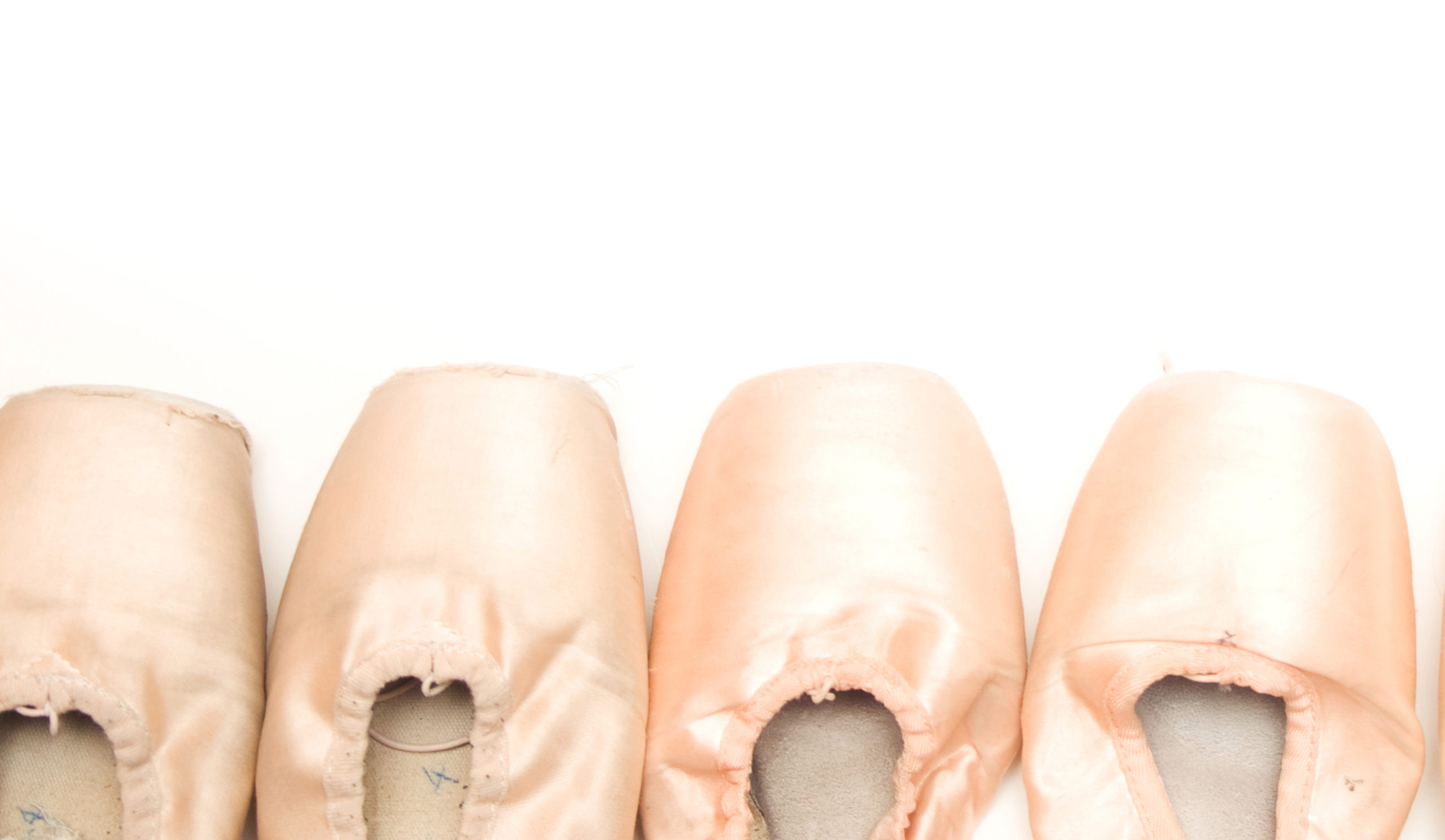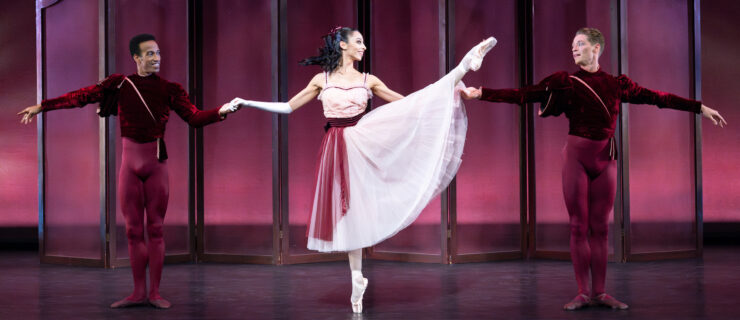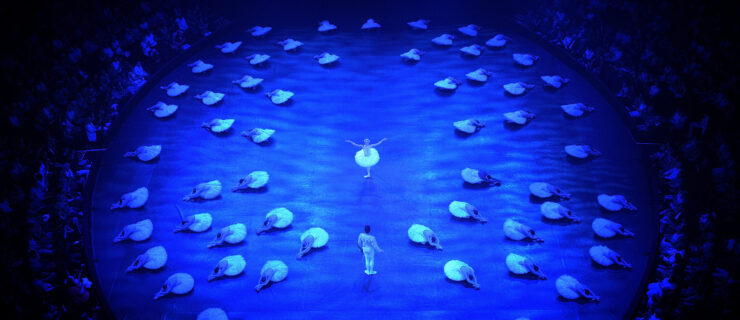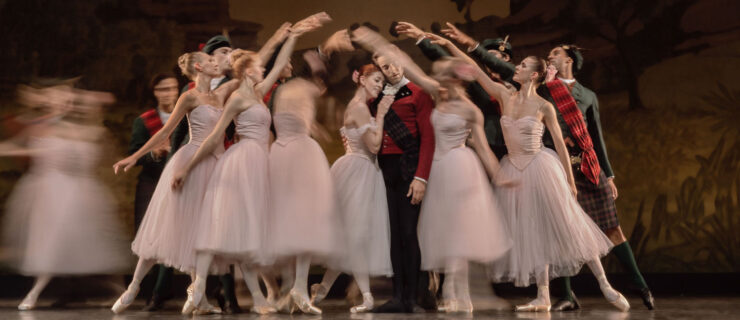Your Training: The Coach Question
Patricia Zhou remembers hearing her coach’s encouraging voice in her head as she competed at the Beijing International Ballet Invitational in 2010. Now in the corps of Staatsballett Berlin, Zhou says the days Viktor Kabaniaev spent coaching her ranked among the most productive of her training. “He made me practice my entrelacé diagonal over and over to get me to jump more and really kick the front leg. Even when I was tired!” she says. “That made me so much stronger.” Most importantly, Kabaniaev gave Zhou confidence. “I’d never gone to competitions thinking I had to win. But he pushed me, and had me believing in myself—and believing I could place.” Their work together paid off: Zhou left Beijing with a silver medal.
It takes more than dazzling technique to succeed at top competitions. You also need a superb coach. “Your coach is there to be your eyes, your cheerleader and your guide,” says Evelyn Hart, who coaches dancers in Toronto. The best coaches will help you improve your weak spots—and polish aspects of your dancing you didn’t even realize needed work. But finding the right match takes some searching.
What to Look For
Good coaches will fine-tune everything: the technical, the artistic and the stylistic details. “Avoid anyone who just runs the variation repeatedly without digging deeper,” says Edward Ellison, a New York teacher who has successfully coached dancers. “Each section of choreography should be carefully dissected, exploring how each individual part of the anatomy contributes to the whole.” Contact dancers who worked with the coach in the past to ask how supportive they felt the coach was, if he or she helped find solutions to the dancer’s problems, and assisted with practical details like costumes, makeup, hairstyle and music.
But to find a good coach for you, take stock of your personal weaknesses. Do you need to refine your interpretation or work on your upper body? Find someone whose dancers show those strengths. Check out online videos of a coach’s past competition winners to see if their style resonates with you. Look at their repertoire, how they accent the movement, and their costume choices.
Lastly, look for a coach who’s been through the competition you’re going to. You want an insider in your corner: someone who will know the level of talent, and understand the psychological pressure. “A coach who’s been before will know the politics of a competition,” Hart says. “It’s stressful: There might be very limited space and time, you might have to rehearse on stage at 3 a.m.—how do you handle that?” A good coach will guide you through it.
What to Ask
Talk frankly about your goals and expectations with a potential coach. What is the time frame? Will he or she come with you to the competition? What will the financial arrangements be? Determine if you will be paying the coach a flat fee or an hourly rate. The best coaches typically command up to $200 an hour, says Hart, and you may need to consider the costs of renting a studio, too. “Don’t be afraid to ask hard questions,” Ellison advises. “Get them to speak honestly about what you need to do to meet your goals, as well as your chances of succeeding.”
How to Know If It’s a Good Match
If you’ve found someone, take a few classes with them to see how you work together, suggests Youth America Grand Prix co-founder Larissa Saveliev (who often offers coach recommendations to YAGP participants). “Find somebody who’s good for you, not just good in general,” she says. “Don’t pick a coach who has a completely different style from what you’re used to.”
Look for a personality you respond to, whether that’s bubbly or demanding. And find an artistic vision you trust. “A coach will do as much as he or she can to help you prepare, but if you don’t have complete and utter willingness to take their advice, there’s only so far you can go,” says Hart. “They have to be the person you believe will take you to the best place.”
New USA IBC Head
Former Miami City Ballet artistic director Edward Villella (who was recently given the American Academy of Arts and Letters’ Award for Distinguished Service in the Arts) will lead the USA International Ballet Competition jury in 2014. He’s taking over from Bruce Marks, who led for two decades. As the American sister of the prestigious IBCs in Varna and Moscow, the Jackson competition is one of the oldest and most respected in the country. Top companies attend to scout dancers, and a USA IBC credit on a resumé is an impressive mark of distinction. ?Organizers are currently accepting applications.
Competition dates:
June 14–29, 2014
Application deadline:
November 15, 2013
Ages:
Juniors, 15–18 years old; seniors, 19–26 years old
Held:
Once every four years
Competitors accepted:
Approximately 100 dancers
Jury:
13 members, with no more than one representative from any country
Awards:
Gold, silver and bronze medals, cash prizes up to $15,000 and scholarships. Companies in attendance often offer one-season contracts and apprenticeships.
Past medalists
: Isaac Hernández, Melissa Hough, Misa Kuranaga, Sarah Lamb, Sarah Lane, Daniil Simkin
Feedback:
Although jury scores are not released, eliminated competitors are offered a private evaluation session to review the judges’ written comments and suggestions.
Website:
usaibc.com
Technique Tip:
?“Your balance is like a baby’s mobile: All the pieces spin together smoothly and surely, but precariously at the same time—because with even a gentle touch, they can all go shaking in different directions. My mother doesn’t have a background in ballet, but one day she explained that to me, and it clicked!” —Tulsa Ballet principal Youhee Son





